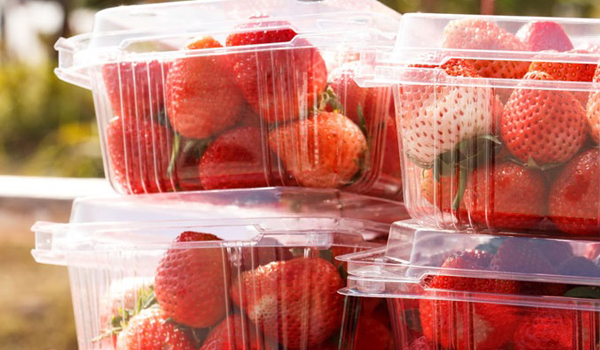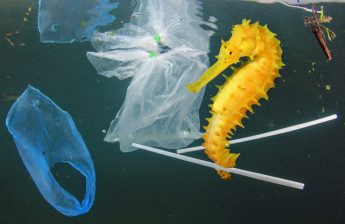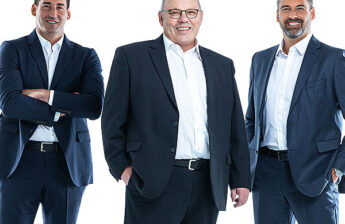HOUSTON–(BUSINESS WIRE)–Global demand for polyethylene, the world’s most used plastic, has nearly doubled since 1999,* according to IHS Markit (Nasdaq: INFO), a global business information provider. However, new analysis says this growth in demand is being met with significant new market pressures that threaten the future of plastics demand growth, such as a rise in consumer expectations around sustainability, along with tightening environmental regulations in key growth markets such as China. (*According to IHS Markit, global demand for PE was 50 million metric tons (MMT) in 1999 and in 2018 demand is expected to exceed 100 MMT.).
“As more consumers in developing countries such as China and India increase their spending power and join the global economy, we are witnessing truly phenomenal growth in demand for the key plastics that are critical to so many of the products and life essentials we rely on every day, such as cell phones, computers, food and beverage packaging, clothes, cars and even life-saving medical devices,” said Nick Vafiadis, vice president of plastics for IHS Markit. “That consumption growth, though, comes with greater expectations and responsibility, both for plastics producers and consumers. We at IHS Markit are focused on how producers and consumers can work together to address the issues of sustainability and management of plastics recycling, reuse, or waste reduction. This issue is top of mind for plastics industry leaders.”
Addressing sustainability while managing increasing demand and environmental regulations will be key topics of discussion at the PEPP 2018: Polyethylene and Polypropylene Chain Global Technology and Business Forum, June 26-28, in Dusseldorf, Germany. A host of chemical and plastics industry leaders representing the plastics value chain — from resin producers, to processors and brand owners, as well as others involved in recycling and reuse, will address the issue of sustainability during two full days, as the industry moves toward a circular economy mindset. On the agenda are policy makers and influencers including the World Plastics Council and PlasticsEurope, resin producers Borealis, LyondellBasell and SABIC, major converters including Amcor and Constantia, as well as brand owners, the Coca-Cola Company and Nestlé S.A.
“In my conversations with the leaders of plastics resins producers and manufacturers, it is clear the plastics industry understands the need to be very proactive in embracing sustainability across the entire supply chain,” Vafiadis said. “This includes leading stakeholder discussions and finding ways to partner with retailers, consumers, recyclers, and even with designers, to plan for second-life uses for products after they are initially consumed. We are excited to be in Germany for this discussion, since Europe leads the world in sustainability innovation.”
By 2022, global polyethylene demand is expected to reach 120 MMT annually, while global demand for polypropylene is expected to be just under 90 MMT. Much of that growth is being driven by China, which accounts for about 60 percent of new global plastics demand growth. China’s ban on importing plastics waste for recycling plus the global growth of online shopping trends are helping increase demand for virgin plastics material, IHS Markit said.
At the PEPP Forum, Jim Seward, chairman, World Plastics Council and vice president of JV and international business at LyondellBasell, will examine the role of plastics in the 21st century. Karl Foerster, executive director of PlasticsEurope, will address increasing environmental sustainability requirements, including the new European policy to move to 55 percent recycled content by 2025, and how those changes will impact the plastics industry.
“As announcements of additional polyolefins capacity and images of plastic pollution share the headlines globally, the need for a differentiated and sustainable plastics industry is emerging,” Vafiadis said. “The transition from a linear (take-make-dispose) economy to a circular economy (recover-innovate-reuse) represents a shift to ensure industry sustainability and value creation.”
Andrea Landuzzi, global marketing director, technology solutions-polymer additives for Solvay, will discuss examples of how purpose-driven product development that leverages high-performance stabilizers can enable the polyolefins industry to become more economically and ecologically sustainable.
Hartmut Siebert, technical marketing manager/packaging for Clariant Plastics & Coatings AG, and Sander Koster, group leader for packaging food safety at Nestlé S.A., will discuss safety in food packaging, while Izabela Lomacka, global procurement director, closures, labels and shrink film for the Coca-Cola Company, Cross-Enterprise Procurement Group, will discuss consumer packaging trends and sustainability.
The reduction of volatile organic compounds (VOC) for automotive interior compounds has become a major topic with increasingly stringent norms. In response to this trend, resin producers introduced low-VOC grades, but the profitability of these grades has not met expectations. Catherine Malchaire, technical sales manager Europe, business unit polymer stabilizers Songwon International AG, will look at this dichotomy between consumer demands and market realities.
Enrico Dolce, product development and sales manager, Fater AHP Recycling Business Unit, will discuss turning waste into usable raw materials.
“The issue of sustainability is perhaps the most critical influencer for the plastics industry as a whole, both today and in the future,” Vafiadis said. “Many communities across the globe are exploring bans on plastic bags, but marine waste is an issue that the plastics industry must take a leadership role in addressing because the industry has learned it needs a cooperative, multi-organizational approach that brings all the stakeholders together to solve such a very complex problem. Based on our discussions with industry leaders, that challenge is something they are committed to addressing, and it will be the overarching focus of our PEPP 2018 Business Forum.”
To register for PEPP 2018,visit PEPP 2018: Polyethylene and Polypropylene Chain Global Technology and Business Forum.
Media Attendance: Credentialed media who have successfully registered for the PEPP 2018 Business Forum are welcomed to cover the industry market briefing, but must request press credentials in advance by contacting Melissa Manning at [email protected]. There is no cost for registered media to cover the industry briefing.
Source : businesswire.com









